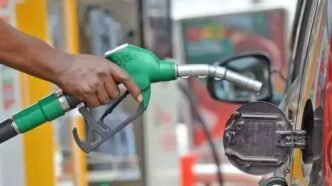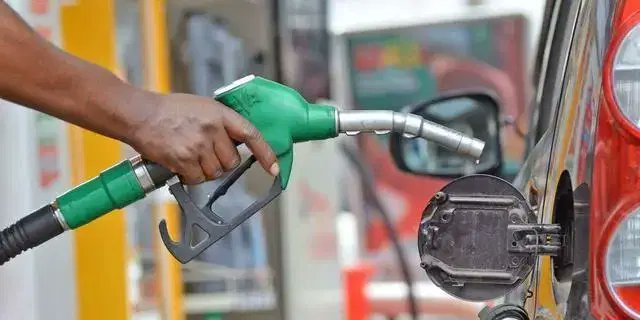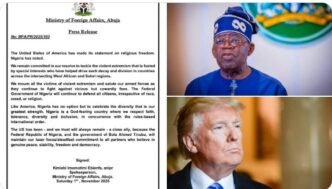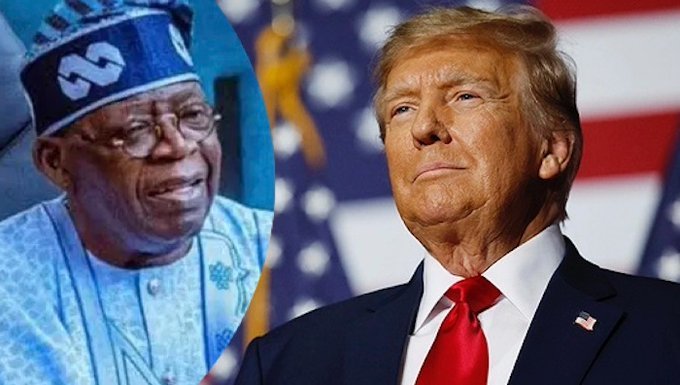Nigeria’s petroleum marketers have raised alarm that the pump price of Premium Motor Spirit (PMS), popularly known as petrol, could soar above ₦1,000 per litre following President Bola Tinubu’s approval of a 15 per cent ad valorem import tariff on fuel imports.
The new tariff regime, which takes effect after a 30-day transition period ending November 21, 2025, is part of the Federal Government’s latest strategy to protect local refiners and discourage the importation of cheaper foreign petroleum products that undermine domestic refining capacity.
However, key stakeholders in the downstream oil sector warn that while the move is intended to strengthen Nigeria’s refining industry, it could trigger another wave of petrol price increases, worsen inflation, and deepen economic hardship for millions of Nigerians.
Policy Overview
The 15 per cent import tariff, approved by President Tinubu earlier this week, will apply to all imported petroleum products entering the country.
According to government officials, the tariff is an ad valorem duty, meaning it is calculated as a percentage of the product’s import value. The measure is expected to make imported petrol more expensive and thereby encourage oil marketers and distributors to source products from local refineries, including the Dangote Petroleum Refinery and other modular refineries under development across the country.
A senior official in the Ministry of Finance said the decision aligns with the administration’s goal of promoting self-sufficiency in fuel production and reducing Nigeria’s dependence on imported petroleum.
“The government’s intention is to create a level playing field that prioritizes domestic production. The import tariff is designed to encourage investment in local refining and ensure the sustainability of projects like Dangote Refinery,” the official explained.
Marketers Raise Concerns
Despite the policy’s intentions, petroleum marketers and depot operators warn that the move could backfire in the short term, leading to a sharp rise in pump prices nationwide.
Speaking to The PUNCH in a telephone interview on Thursday, multiple depot operators who requested anonymity said the new tariff would increase landing costs and inevitably push retail prices above ₦1,000 per litre.
“As it stands, petrol already sells between ₦910 and ₦940 per litre in several states. Once the 15 per cent import tariff takes effect, we are looking at prices exceeding ₦1,000 per litre,” one marketer said.
Another depot owner noted that most of the fuel currently consumed in Nigeria still comes from imports, despite recent increases in domestic refining.
“The Dangote Refinery has begun limited supplies, but it cannot yet meet national demand. Independent marketers still rely heavily on imports. Adding a 15 per cent tariff now will only raise costs,” the operator added.
Current Market Situation
Petrol prices have been steadily rising across Nigeria since the removal of fuel subsidies in May 2023. In Lagos, Abuja, and major cities, the product currently retails between ₦880 and ₦920 per litre, while in some northern and remote areas, prices have crossed ₦950.
The Nigerian Midstream and Downstream Petroleum Regulatory Authority (NMDPRA) estimates that the country consumes between 50 and 55 million litres of petrol daily, making it one of Africa’s largest fuel markets.
Analysts warn that any additional import charges could ripple through the economy, affecting transportation, manufacturing, and the prices of essential goods and services.
Inflationary Pressure Looms
Economists say the potential hike in petrol prices could worsen Nigeria’s inflation, which already stands above 32 per cent, according to the National Bureau of Statistics (NBS).
A sustained increase in fuel prices would raise the cost of transportation and logistics, feeding into higher prices for food, housing, and energy.
Energy economist Dr. Gabriel Idoko told Business Insight that the import tariff, though strategically sound in the long term, could have “serious short-term consequences.”
“The government wants to stimulate local refining, but the reality is that Nigeria still imports over 70 per cent of its fuel. Imposing a 15 per cent duty will make imports more expensive immediately, leading to higher pump prices and increased hardship for consumers,” Idoko said.
He suggested that the government should first ensure sufficient local refining capacity before implementing such a tariff.
Dangote Refinery and Domestic Capacity
The Dangote Refinery, Africa’s largest single-train refinery with a capacity of 650,000 barrels per day, has started test production and limited fuel supply to the local market.
Government officials have hinted that once fully operational, the refinery could meet Nigeria’s domestic fuel demand and even export to neighboring countries, saving billions of dollars in foreign exchange spent on imports.
However, experts say the refinery’s output alone may not immediately stabilize prices due to foreign exchange volatility and the high cost of crude feedstock.
The exchange rate remains a critical factor — with the naira currently trading above ₦1,550 per dollar, importers face steep costs for foreign exchange, further complicating pricing.
Government’s Position
The Federal Government maintains that the import tariff is part of a broader industrial protection policy aimed at reviving the downstream sector and boosting Nigeria’s energy security.
A senior official at the Ministry of Petroleum Resources said the measure is consistent with global best practices.
“Many countries impose tariffs on imported petroleum products to protect domestic refiners. Nigeria cannot continue to be a dumping ground for foreign fuel when we have invested heavily in local capacity,” the official said.
The government has also pledged to monitor the transition period closely to prevent hoarding or artificial price inflation by marketers.
Public Reaction
The announcement has sparked mixed reactions among citizens and consumer advocacy groups.
While some view the policy as necessary to promote self-reliance, many Nigerians fear it could deepen economic hardship at a time when wages and living standards are already under strain.
Public transport operators and small business owners have expressed concern that any further rise in fuel prices could cripple operations.
A commercial driver in Lagos, Abiodun Akinlabi, said he might be forced to park his vehicle if prices exceed ₦1,000 per litre.
“I already spend almost ₦25,000 daily on fuel. If petrol crosses ₦1,000, it will be impossible to make a living. Passengers will not be able to pay double fares,” he lamented.
Policy Analysts Advise Caution
Energy policy analysts have advised the government to implement the tariff gradually and consider targeted interventions to cushion its impact on consumers.
They suggest that part of the expected revenue from the tariff be channeled into public transport subsidies, renewable energy projects, and social safety nets.
Dr. Funmi Adeoye, a policy researcher at the Centre for Development Studies, warned that a sudden increase in fuel prices could undermine public confidence in the government’s reform agenda.
“Economic reforms must be sequenced carefully. While the import tariff supports industrialization goals, it must be balanced with measures to protect citizens from inflationary shocks,” she said.
Conclusion
As Nigeria transitions into a new fuel pricing era, the 15 per cent import tariff on petrol imports underscores the Tinubu administration’s determination to strengthen local refining and achieve energy self-sufficiency.
However, petroleum marketers warn that without immediate domestic production capacity to offset imports, the policy could push petrol prices beyond ₦1,000 per litre, worsening the cost of living crisis.
With just three weeks until implementation, all eyes are on the Federal Government’s ability to manage the transition — balancing industrial protection with consumer welfare — in a nation already struggling under the weight of rising inflation and economic uncertainty.














